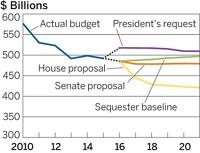Advertisement
Grab your lab coat. Let's get started
Welcome!
Welcome!
Create an account below to get 6 C&EN articles per month, receive newsletters and more - all free.
It seems this is your first time logging in online. Please enter the following information to continue.
As an ACS member you automatically get access to this site. All we need is few more details to create your reading experience.
Not you? Sign in with a different account.
Not you? Sign in with a different account.
ERROR 1
ERROR 1
ERROR 2
ERROR 2
ERROR 2
ERROR 2
ERROR 2
Password and Confirm password must match.
If you have an ACS member number, please enter it here so we can link this account to your membership. (optional)
ERROR 2
ACS values your privacy. By submitting your information, you are gaining access to C&EN and subscribing to our weekly newsletter. We use the information you provide to make your reading experience better, and we will never sell your data to third party members.
Policy
New House Caucus Advocates For Science, National Labs
Some 30 lawmakers come together to advocate for science funding, raise awareness about the role of basic research in economic growth
by Andrea Widener
March 4, 2013
| A version of this story appeared in
Volume 91, Issue 9

A new advocacy group has emerged in the House of Representatives to support basic science research at universities and national laboratories across the country.
The Science & National Labs Caucus was founded at the end of last year to advocate for science funding and to raise awareness about the role of basic research in economic growth. It also highlights the role of federal research labs and universities in fueling that growth.
Although there are other caucuses that focus on research, “it made sense to have a specific focus on what our national laboratories and research universities are doing,” says Rep. Randy M. Hultgren (R-Ill.), a cofounder of the new caucus with Reps. Chaka Fattah (D-Pa.), Ben Ray Lujan (D-N.M.), and Alan Nunnelee (R-Miss.).
The group is starting up at a challenging time for federal science. Most research agencies have had flat or declining budgets for the past decade, despite pledges from the Administration and Congress to increase support. And these agencies have been tossed around by the U.S.’s recent financial uncertainty; the 2013 budget still has not been passed by Congress six months into the fiscal year and imminent across-the-board budget cuts, called sequestration, have been looming for more than a year (C&EN, Feb. 25, page 4).
One of the caucus’s first efforts will be to ensure that members of Congress recognize the importance of federal funding for research and the consequences if it is cut, says Hultgren, who represents the area that includes Fermi National Lab.
Hultgren’s vision is that the caucus will be bipartisan—and eventually bicameral. It is open to any member of Congress who is interested in the topic and willing to learn. So far, the coalition has about 30 members, split evenly between the parties, who run the gamut from South Carolina Republican to California Democrat.
Although caucus members all support science, they have different ideological backgrounds. Hultgren, for instance, considers himself a strong conservative, but he believes that backing basic science and research is one of the roles of government.
“This is something that is difficult, if not impossible, to draw into a private business model,” he explains. “Businesses can take discoveries and apply them, but basic science research is really something that we do well in government.”
Although the caucus hasn’t yet set an agenda, Hultgren hopes it will advocate on a variety of topics, including innovation and science education.
One item on the caucus’s agenda is to take a new look at how the U.S. funds science. Although many countries’ science budgets cover a half-dozen years at a time or more, the U.S. supports research in yearly allocations. The annual process is made worse by Congress’ inability to pass the federal budget on time. Hultgren would love to help move the conversation to where science funding should be in 10 years.
The story needs to be told about how short-term funding puts us at a disadvantage, he explains.





Join the conversation
Contact the reporter
Submit a Letter to the Editor for publication
Engage with us on Twitter